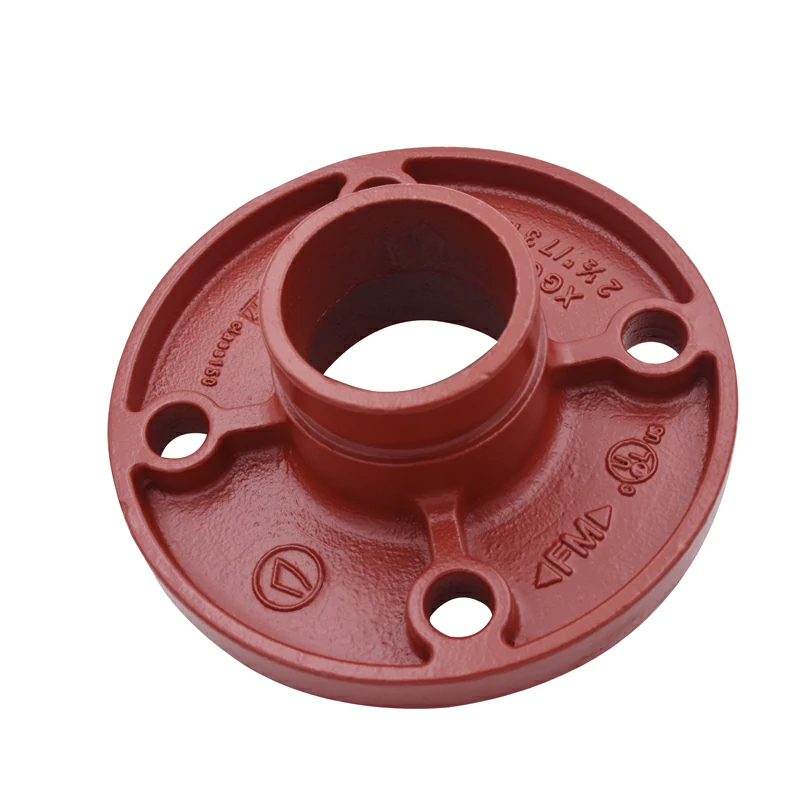All flanged tee ductile iron fittings and ductile iron double flanged pipes are indispensable components in modern pipeline systems. Their durability, versatility, and reliable performance make them ideal for a wide range of applications in industries such as water supply, wastewater management, and industrial processes.
Understanding the features, benefits, and applications of these fittings and pipes allows professionals and users to make informed decisions when selecting components for their pipeline systems. The exceptional strength, corrosion resistance, and ease of installation associated with all flanged tee ductile iron fittings and ductile iron pipe fittings flanged contribute to the efficiency, longevity, and reliability of pipeline networks.
Understanding All Flanged Tee Ductile Iron Fittings

All flanged tee ductile iron fittings are versatile connectors used in pipeline systems to join pipes at right angles, forming a tee shape. These fittings offer numerous advantages that contribute to the efficiency and reliability of pipeline networks. Here’s a closer look at the features and benefits of all flanged tee ductile iron fittings:
a. Material Composition: All flanged tee ductile iron fittings are manufactured from ductile iron, also known as nodular cast iron. This material offers exceptional strength, impact resistance, and flexibility, making it ideal for demanding applications.
b. Flanged Ends: The fittings feature flanged ends, which are flat, circular surfaces with bolt holes. These flanges allow for secure and leak-proof connections with other flanged components, such as valves, pipes, or equipment.
c. Corrosion Resistance: Ductile iron is inherently resistant to corrosion, ensuring longevity and reliability in various environments. Additionally, coatings such as epoxy or fusion bonded powder can be applied to enhance the corrosion resistance of all flanged tee ductile iron fittings.
d. Pressure Ratings: All flanged tee ductile iron fittings are engineered to withstand high-pressure applications. They are available in a wide range of pressure classes, allowing for the selection of fittings suitable for specific system requirements.
e. Versatility: These fittings are designed to accommodate different pipe sizes and materials, making them highly versatile. They can be used in a variety of applications, including water distribution, wastewater management, irrigation systems, and industrial processes.
Exploring Ductile Iron Double Flanged Pipes
Ductile iron double flanged pipes are robust and reliable conduits used in water supply, wastewater management, and industrial applications. These pipes offer several advantages over other pipe materials, making them a preferred choice in many industries. Let’s delve into the features and benefits of ductile iron double flanged pipes:
a. Material Composition: Ductile iron double flanged pipes are made from ductile iron, a material known for its exceptional strength, durability, and flexibility. This material allows for high-pressure resistance and shock absorption, minimizing the risk of pipe failures.
b. Flanged Ends: Similar to all flanged tee ductile iron fittings, the double flanged pipes feature flanged ends. These flanges facilitate secure and leak-proof connections with other flanged components, such as valves, fittings, or pumps.
c. Corrosion Resistance: Ductile iron is inherently resistant to corrosion, making ductile iron double flanged pipes highly durable and long-lasting. Additionally, protective coatings can be applied to further enhance their resistance to corrosive environments.
d. Ease of Installation: The flanged ends of these pipes simplify installation and maintenance processes. The flanges allow for easy connection and disconnection, reducing installation time and facilitating repairs or modifications when necessary.
e. Versatility and Application: Ductile iron double flanged pipes are suitable for various applications, including water supply networks, wastewater management systems, industrial processes, and hydropower projects. They can handle both gravity and pressure flows, making them versatile in different environments.
